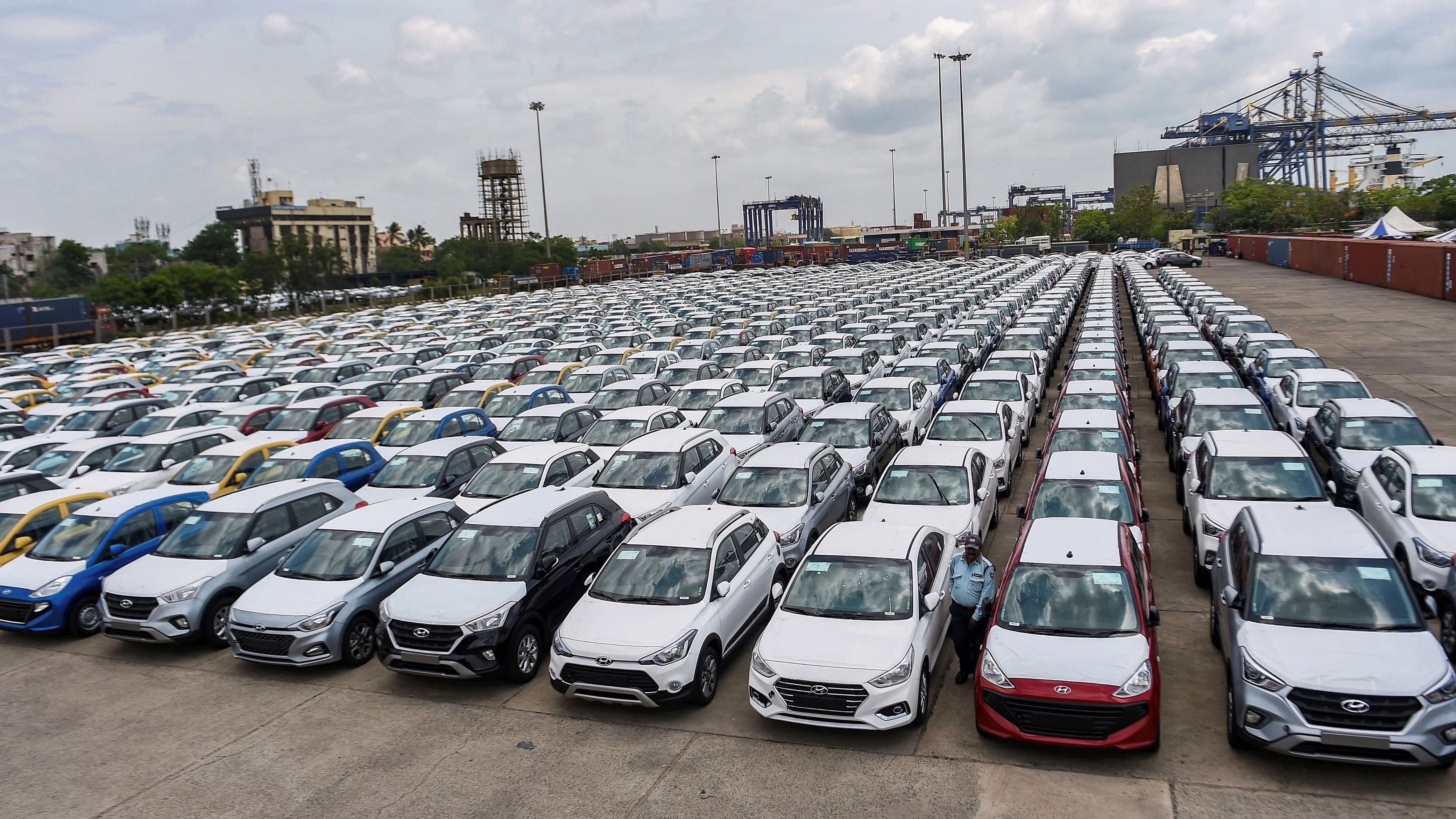
Representative image of cars.
Credit: PTI Photo
Bengaluru: Even as major automakers, barring Tata Motors, celebrated record sales of vehicles in November, the country’s largest car maker sounded the alarm bells on the rising inventory.
During the monthly sales call Shashank Srivastava, Senior Executive Officer, Marketing & Sales raised concerns about the present stock levels looming at 30-35 days. While Tata Motors posted a marginal decline of 1 per cent in its sales, the overall vehicle sales in November rose to 3.30 lakh units (wholesale) and 3.48 lakh units (retail). However, the higher retail number could not take care of the already piled-up inventory.
It may be recalled that earlier in November, the Federation of Automobile Dealers’ Associations (FADA) had flagged inventory holding of 65-70 days at the end of October. “The inventory pile-up can be attributed to one, the easing of supply chain challenges in the industry which led to a sudden surge in production capacity and two, model mismatch, where automakers are producing more of what is not in demand and less of what is in demand,” explained Anurag Singh, managing director of consultancy firm Primus Partners. These are early signs of inventory pile-up and may get worse if not addressed in time, he added.
Others agreed.
“Across automakers, the entry car segment is slow-moving, leading to higher inventory,” reasoned Rohan Kanwar Gupta, Vice President & Sector Head - Corporate Ratings, ICRA Limited.
“The slug is expected to continue toward the first quarter of calendar year 2024,” said Suraj Ghosh, vice president of Minus Zero, autonomous mobility company, adding that automakers could adjust their production schedules in these months with increased promotions and discounts to clear off the inventories.
Interestingly, the industry currently has pending bookings to the tune of 206,300 units.
Sales of Maruti’s mid-sized sedan Ciaz clocked just 278 units last month as compared to 1,554 units in November 2022, while sales of its van Eeco were higher at 10,226 units as against 7,183 units in the year-ago month.
Maruti, which saw a 7 per cent growth in booking over the past year, has waiting periods ranging between 1-2.5 months for its models including Ertiga, Invicto, Brezza and Vitara. This is when the sales of compact cars, including models like Baleno, Celerio, Dzire, Ignis, Swift, Tour S, and WagonR, decreased to 64,679 units in November 2023, compared to 72,844 units in the corresponding month of the previous year.
“There is a skew in stocks, they are higher for hatches or smaller cars,” Srivastava said, highlighting the need for correction in overall stock levels. He expects the December wholesale numbers to be lower at higher sales to offset the trend.
His company reported a 3.39 per cent rise in total sales at 1,64,439 units in November 2023 as compared to 1,59,044 units a year ago while its market share grew 1.1 per cent to 42.1 per cent in the April-November period. Its overall domestic passenger vehicle (PV) sales stood at 1,34,158 units last month compared to 1,32,395 units in November 2022, registering a growth of 1.33 per cent, it added.
On the other hand, Mahindra & Mahindra and Toyota Kirloskar recorded a growth of 21 per cent and 51 per cent respectively in sales.
Rival Hyundai Motor India also saw a 3 per cent year-on-year (YoY) increase in its overall sales this November at 65,801 units while Honda Cars India Ltd registered a growth of 24 per cent YoY with the monthly domestic sales of 8,730 units.
Meanwhile, carmakers have already announced price hikes starting January to push sales to deal with the challenge of inventory pile-up before entering the new year.